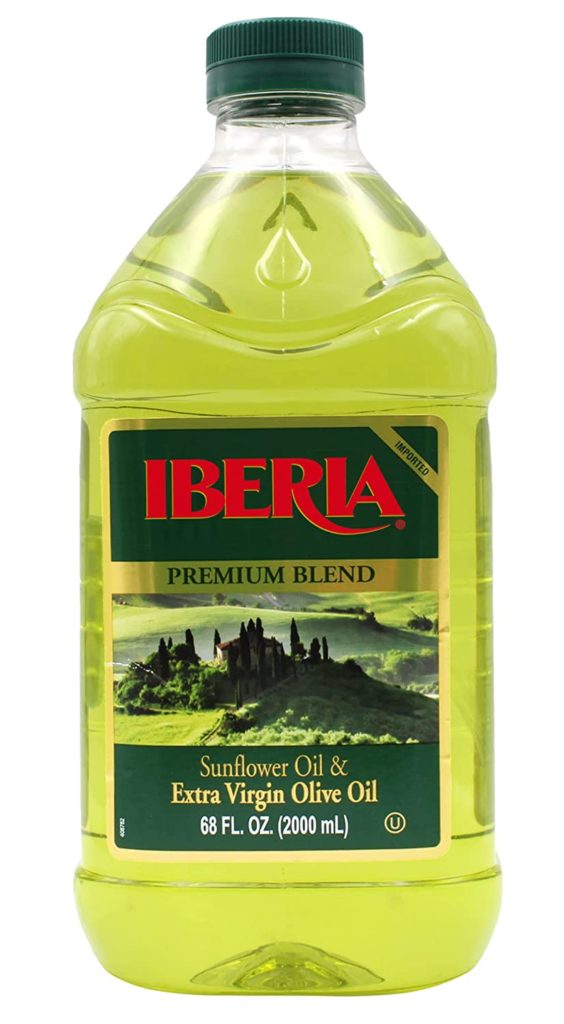Sunflower oil has a long list of health benefits. Monounsaturated fats make up most of their composition, with only roughly 10% saturated fats. It also contains vitamin E isomers, which have strong antioxidant qualities. These qualities help minimize inflammation and free radical damage, boost immunity, and lower the risk of heart disease. The rising popularity of this oil can be attributed to several factors. The top five reasons why sunflower oil is a healthy choice are listed below.
Cooking and deep-frying are both done with sunflower oil. Omega-9 fatty acids are abundant in high-oleic sunflower oil, and it comprises 65 percent oleic acid and 25% linoleic acid, compared to only 10% linoleic acid in its low-oleic equivalent. The newest version, high-oleic sunflower oil, has different qualities. It is quickly expanding in the oilseed market due to its advantages, and it also has better shelf stability and nutritional value.
Sunflower Oil Nutrition Facts
Here is a table for the nutrition facts of sunflower oil per 100 grams:
| Nutrient | Amount per 100g |
| Calories | 884 |
| Fat (g) | 100 |
| Saturated Fat (g) | 11.5 |
| Trans Fat (g) | 0 |
| Polyunsaturated Fat (g) | 46.2 |
| Monounsaturated Fat (g) | 27.8 |
| Omega-3 fatty acids (g) | 0.7 |
| Omega-6 fatty acids (g) | 45.5 |
| Vitamin E (mg) | 41.08 |
| Vitamin K (μg) | 5.4 |
Note that these values may vary depending on the brand and type of sunflower oil.
Health Benefits of Sunflower Oil
Organic sunflower oil is a golden-colored, exquisite cooking oil that is also one of the healthiest options available. Sunflower seeds extract the oil, which has a mild flavor, and it is said to contain more vitamin E than any other vegetable oil.
It has been used for its health benefits since 3000 BC when it was first grown.
- Healthy Body
Sunflower oil fatty acids enhance the immune system, fighting infections. Fatty acids protect skin membranes from viruses and germs. Infants are given sunflower oil to prevent sickness.
Today’s fast-paced job makes us forget excellent habits. Most eat fast food daily. Diets induce childhood obesity and sickness. Healthy organic sunflower oil reduces disease.
Reference: Oilseed crop sunflower (Helianthus annuus) as a source of food: Nutritional and health benefits
- Greater Energy Levels
Saturated fats make you tired and cranky, whereas unsaturated fats in organic sunflower oil keep you active. Due to daily demands, eating energetic foods is crucial. Choose frying oil carefully.
- Anti-Cancer Properties
Antioxidant-rich organic sunflower oil. Vitamin E abounds. Tocopherols. Tocopherols stop cancer-causing free radicals.
Sunflower oil prevented 40% of cancer in one trial. Anti-cancer sesamol was detected in organic sunflower oil. Although sunflower oil hasn’t been demonstrated to lessen cancer symptoms, it’s worth a try!
- Fights Asthma and Inflammation
Asthma kills millions worldwide. An American Journal of Clinical Nutrition study found that organic sunflower oil’s anti-inflammatory qualities improve asthma symptoms. Vitamins and Omega-6 make sunflower oil anti-inflammatory.
- Lower Cholesterol levels
Studies show organic sunflower oil decreases cholesterol. Cholesterol-like sunflower phytosterols. Cholesterol-lowering organic sunflower oil. Reducing cholesterol benefits everyone. Get organic sunflower oil today for family wellness!
- Helps With Digestion
Organic sunflower oil, a natural laxative with low saturated fat, aids digestion and avoids constipation. Sunflower-oil-rich foods aid digestion. Avoid saturated fat-laden oils if you’re hurting yourself.
What Is the Best Usage for Sunflower Oil?
This substance is derived from sunflower seeds. It is used in foods as a cooking oil. Moreover, it is utilized to treat a range of illnesses. The most prevalent uses for sunflower oil are to decrease cholesterol and prevent heart disease. It’s commonly used for sautéing, stir-frying, deep-frying, and baking, with a smoke point of 450°F and a somewhat nutty flavor.
Sunflower seed oil comes in various kinds, some of which are higher in monounsaturated fats than others. Polyunsaturated and monounsaturated fatty acids are found in them. Sunflower kernels are high in Vitamin B-complex vitamins, such as folic acid, niacin, pyridoxine, and minerals. Consumption of this oil in suggested amounts daily can be good for general health.
Why Is Sunflower Oil Good for Your Skin?
Sunflower oil contains antioxidants that help prevent wrinkles and premature aging, keeping your skin appearing young and fresh. Sunflower oil also includes linoleic acid, which aids in the retention of moisture in the skin, making it less dry. Is it OK to use sunflower oil on your face? Yes, you can use sunflower oil as a moisturizer or makeup remover on your face.
Apply it to clean skin as a moisturizer and let it absorb. Apply it as a cleaner and wipe it clean with a moist cloth. Sunflower Oil is known for its skin-brightening properties, which help balance out skin tone. Furthermore, it is said to reduce sensitivity to sunlight and aid in lightening an undesired tan.
Is Sunflower Oil Good for Cooking and Frying?
Sunflower oil can be used for shallow frying, and it has a high smoke point and contains a lot of vitamin E. On the other hand, it is high in omega-6, and an excess of omega-6 fatty acids in the diet can promote inflammation. It is good for deep frying and produces crispy chips and batter, perfect for your ActiFry.
Furthermore, sunflower oil has been shown to help keep your skin clear, immune system strong, and heart healthy, so it’s worth including in your diet. Deep frying can be done with olive oil or avocado oil. Peanut and palm oils are less suited for various reasons, including health and the environment.
Is Sunflower Oil Better Than Olive Oil in Terms of Health?
Olive oil is clearly healthier than sunflower oil in terms of Vitamin K concentration, fatty acids, and minerals, as evidenced by the above comparison. Olive oil does not affect the omega-six and omega-three fatty acids balance. However, sunflower oil has the potential to improve the ratio of these fatty acids. Another completely neutral oil! Canola oil, vegetable oil, or sunflower oil can be used 1:1 replacement. If possible, look for organic versions of these oils.
They’re all neutral in flavor and can be used in place of olive oil, which has a stronger, more robust flavor. These vapors contain hazardous compounds known as aldehydes, which are linked to increased cancer risk. Deep frying creates the most aldehydes, although sunflower oil, regardless of cooking mode, produces more aldehydes than other oils. When using sunflower oil, experts advise using low-heat cooking methods.
Conclusion
The oil derived from sunflower seeds is superior to that extracted using the traditional solvent procedure. It can, however, be solvent-expelled. Read the labels to ensure that you’re getting high-oleic sunflower oil. Although expeller-pressed oil is healthier, you should still read the label for further information. Antioxidants are found in greater abundance in sunflower seed oil. As a result, high-oleic sunflower oil can be utilized in many dishes.



